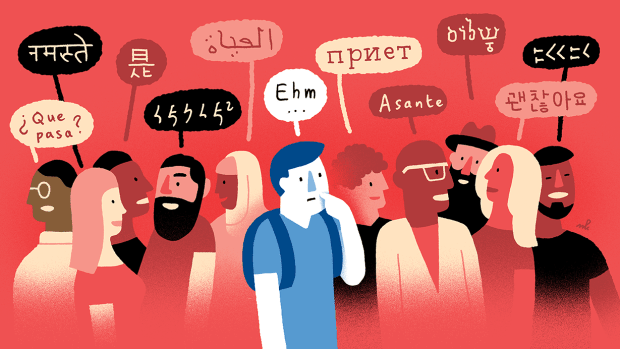
University plans are welcomed: “A turnaround”
More Dutch students in undergraduate education and fewer foreign students? Initial reactions to universities' “self-direction” are positive.
On Thursday, the UNL umbrella organization of universities announced a series of measures to ensure fewer foreign students. The most important: All “major” bachelor's programs will have a Dutch-language variant so that universities can limit the influx of students into English-language programs.
Rosanne Hertzberger, spokesperson for higher education for NSC, responded favorably. If the universities themselves limit the foreign intake and roll back English-language courses, she says, “that is my preference.” After all, they themselves can best oversee the local consequences of their measures, she believes.
Along with the VVD and BBB parties, she demanded quick plans to reduce the number of English-language programs. According to her party, universities have allowed internationalization to get completely out of hand. Foreign students became a revenue model, the NSC believes. But the universities still have credit with her, Hertzberger said when asked. “I think the fact that they are now taking steps on their own is very important. This is a turnaround.”
Masters?
Hertzberger does have a comment about master's programs. Why aren't universities taking measures for them, too? “Almost 80 percent of master’s programs are in English. That's way too many.”
The NSC is not alone in its assessment. In the House of Representatives, a large majority wants to reduce internationalization. Election winner PVV has also been advocating for this for years.
Students are also reacting positively to the new university guidelines. Student organization ISO calls them “promising plans in the right direction.” It hopes that the universities will hurry so that the “overcrowded lecture halls” and the shortage in the student housing market will soon come to an end.
Going too far
Even D66, a defender of internationalization in higher education, sees this as a step in the right direction. Jan Paternotte says: “A balance in internationalization will come, you can see that now in the plans of the universities.” He is more concerned about the plans of his colleagues in other political parties. “My concern is that cutting back on internationalization is going way too far.”
As an example, Paternotte cites the desire of the parties forming the government, including the NSC, to make Dutch mandatory for all bachelors, with a possible exception for technical universities. “But if the labor market demands it...surely it should be possible to teach shipping management, a hotel school, or an international business course in English?”
Instead, Hertzberger argues that firm action is necessary. Otherwise, universities will remain inactive. “Of course, internationalization must be carefully balanced. But universities have shown that it takes a lot of social and political pressure to get something done in this area.”
Language of instruction
In the debate over internationalization, the language of instruction is likely to be the hottest issue in the near future, if for no other reason than that there are few other ways for The Hague to limit the number of international students. Three-quarters of international students are
European and have the same rights as Dutch students. If politicians make Dutch compulsory, the interest of international students will certainly plummet.
Universities are not waiting for that. They prefer to put the brakes on internationalization in another way that is completely under their control: via a “capacity fixus.” This is a special student cap that applies only to the English-language course variant and thus does not affect Dutch-speaking students. Universities can then determine the desired number of international students very exactly.
However, the law does not yet offer this possibility. Outgoing Minister Dijkgraaf has included it in his upcoming bill on internationalization, but that proposal will not reach the House of Representatives for another few months.
The VVD wants to introduce this part of the bill already. It submitted an amendment in January and it will be voted on soon. The question is whether there will be a majority government by then.

